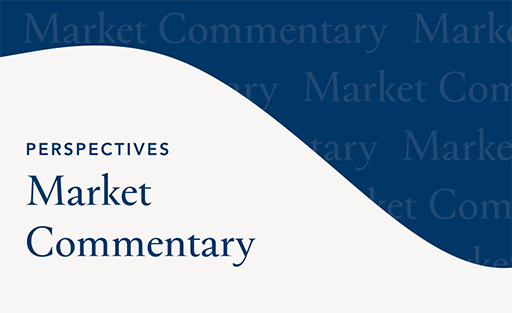Quarterly Insights: July 2025
When we wrote last quarter’s letter, a deep equity sell-off had been underway following the announcement of President Trump’s tariff campaign. The S&P 500 has since fully recovered from that 20% market drawdown, with investors increasingly hopeful we can avoid a full-blown global trade war.
Without knowing which direction markets will move next or how sharp that move might be, we believe it’s important to underscore a hallmark of our investment approach: avoid mixing portfolio management with the political news cycle. This approach may seem misguided, especially under an administration that is eager to reshape the world order. But our reasons are simple. First, policy is difficult to predict, which we’re seeing with how much the tariff picture is changing by the day or how much the administration has needed to dramatically lower its projections for reducing federal spending (initially in the trillions). Second, over the long run, Presidents have far less control over the economy than many realize. Certainly, voters are quick to pin credit or blame on the sitting President for the state of the economy. But that has more to do with the stage of the business cycle we find ourselves in rather than an elected official having true agency over long-term economic outcomes. That is because key variables, such as technological innovation and consumer and corporate behavior, unfold on their own, even if they don’t follow a straight line. Many speak fondly of the Clinton years as he presided over the economic expansion of the 1990s. But we would argue that our country’s surge in prosperity during his presidency was the culmination of many factors decades in the making: deregulation, increased female labor force participation, the proliferation of personal computers in the workplace, and the foundations of world trade that were laid after World War II.
Certainly, the President can make a difference where there are already institutional forces underway that need attention or resources. The President can also disrupt the status quo, including by supporting legislation that incentivizes – or disincentivizes – certain behaviors. But novel ideas that take shape in the early days of a new administration may lose momentum and relevance by the next Presidential General Election. What endures are the cumulative effects of decisions made in corporate boardrooms, institutions, and homes across the country, which have seen many elected officials come and go.
The global economy is an especially complicated system that lurches ahead beyond the reach of any single administration. It’s helpful to remind ourselves of this amid predictions that the U.S. dollar is doomed because we’ve alienated many foreign investors and trade partners, or that globalization is in permanent decline because of our current protectionist tendencies. Pundits have a habit of over-extrapolating current events, ascribing permanence to variables that will likely ebb and flow as they always have.
We can appreciate the temptation to react to headlines: there is a lot of political rancor in the world, and meanwhile, various indicators have suggested the U.S. economy has been on the precipice of a downturn for at least a few years now. Instead of playing politics with your portfolio, we think it’s best to participate in the long-term dynamism of the global economy through owning successful blue-chip companies that have lived through markets of all shapes and sizes. Rather than try to time the next downdraft, investors should maintain a sufficient buffer of reserves in their portfolios that allows them to play offense when difficult market conditions arise and compelling buying opportunities appear.
The above information is for educational purposes and should not be considered a recommendation or investment advice. Investing in securities can result in loss of capital. Past performance is no guarantee of future performance.




